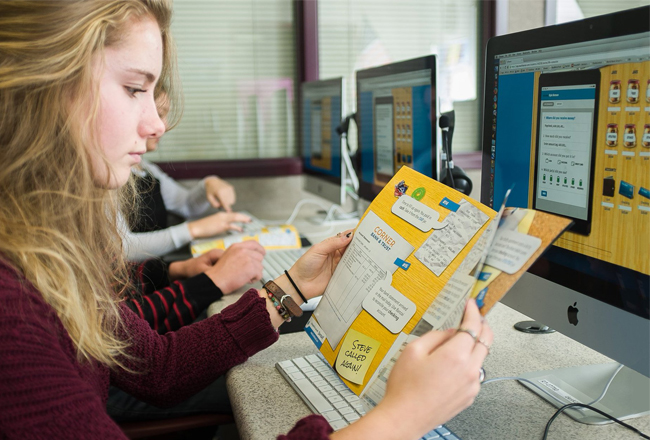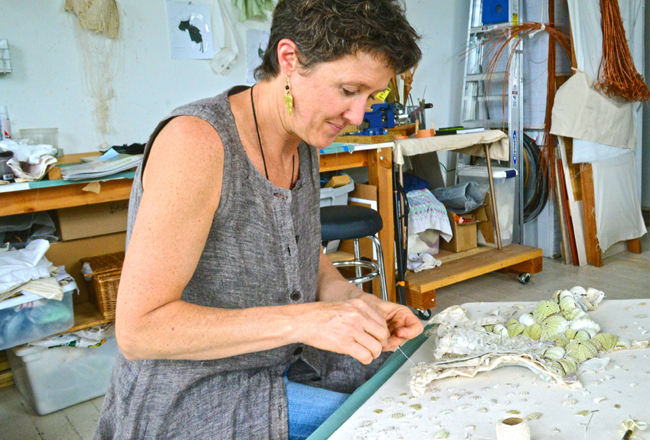
Students in Westchester and Fairfield counties are getting a free lesson in financial education, some before they’ve even earned their first paycheck.
Stamford-based Patriot Bank has partnered with financial literacy firm Banzai Inc. to offer the company”™s web-based educational curriculum to students in 15 schools in the neighboring New York and Connecticut counties. The bank, which has seven branches in Fairfield County and two in Westchester, will sponsor the program at no cost to students or school districts.
“Every single man, woman and child will eventually need to make decisions that will affect their credit score and financial well-being, from taking out a college loan to buying a car or house,” said Judith Corprew, executive vice president and chief compliance and risk officer at Patriot Bank. “Patriot Bank understands it”™s critical that we provide the next generation with real-world tools and resources to make sound financial decisions.”
The 21st century teaching tool was rolled out earlier this year, Corprew said, and distributed to schools chosen by their economic demographic in Stratford, Stamford, Norwalk, Bridgeport, Mount Vernon, Port Chester, White Plains and Yonkers.
“We felt they probably need financial literacy education a little more than some of the other schools, and they might not have the opportunity to take personal debt courses on their own,” she said.
In both states, students are not required to take courses on personal finance prior to their graduation from high school.
“I”™ve seen two-year-olds pick up their mom”™s smartphones and they”™re incredible with technology,” said Corprew. “Why not teach them how important it is to put money into a piggy bank?”
Banzai is an interactive online program that gives students a firsthand look at managing their own finances, providing them with real-life experiences without the risk of any real-life consequences.
Students are exposed to scenarios where they learn to pay bills and balance a budget. The program also teaches students about auto loans, bank statements, savings and more.
“Kids get their own accounts and they work through assignments that are based on real life,” said Morgan Vandagriff, co-founder of Banzai.
Students are given a virtual paycheck and must divide that money into various “jars,” from rent and food to car payments and insurance premiums. They control where their money goes and can prioritize which jars and accounts to put their cash.
“It shows them how expensive being an adult is,” said Emily Inman, public relations manager at Banzai in Provo, Utah. “We get many comments from students along the lines of, ”˜I had no clue how expensive rent was, or how much utilities are each month.”™”
The Banzai curriculum also teaches students the importance of being prepared for any financial curveballs life may throw their way. They learn to manage unexpected expenses such as parking tickets, car repairs, interest charges and overdraft fees.
“Too often students get out of school and they just aren’t ready for the financial roller coasters life can give us,” Vandagriff said. “Banzai teaches students to navigate those twists and turns and come out on top.”
Pre-tests and post-tests gauge how well students grasp financial knowledge both before and after using the software.
“More than ever, it’s important that kids develop sound financial skills to prepare them for the real world, and Patriot Bank realizes that and they’re doing something about it,” Vandagriff said.
To date, Banzai has sponsor partnerships with more than 450 banks and credit unions and works with 27,000 teachers nationwide, allowing students and schools to access the software free of charge. Inman said sponsorship costs vary depending on the number of schools, students and teachers who use the program.
The company has six other sponsors in Connecticut, including Mutual Security Credit Union and American Eagle Financial Credit Union, and more than 20 partners in New York, including Poughkeepsie-based Hudson Valley Credit Union.
The Banzai curriculum is flexible and designed to fit the schedules of a variety of teaching styles, though the company suggests planning two to five classroom hours to complete the program. Courses are designed for high school students, though the company also offers a program, Banzai Jr., aimed at elementary-aged children.



















